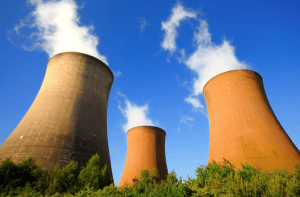Nuclear Power Project critical to Ghana’s energy transition plan – Minister
 Ghana’s first nuclear power project is a critical component of the country’s Energy Transition Plan (ETP) to help move towards cleaner energy.
Ghana’s first nuclear power project is a critical component of the country’s Energy Transition Plan (ETP) to help move towards cleaner energy.
The ETP is a pathway towards transformation of the global energy sector from fossil-based to zero-carbon or clean energy.
The nuclear power project, which is being managed by the Nuclear Power Ghana (NPG), seeks to add nuclear power to the country’s generation mix to provide green sustainable power to fuel industrialisation.
Dr Mathew Opoku Prempeh, the Minister of Energy, in a speech delivered on his behalf at the opening of a training programme for selected journalists on Wednesday, said Ghana was a signatory to the Paris Agreement as well as other international protocols, which required that the country achieved net zero carbon emission by 2070.
The three-day workshop was organised by the NPG and formed part of efforts to promote and sustain media involvement through knowledge sharing, and to widen information reach on Ghana’s efforts to include nuclear power as the country’s green energy solution.
It is on the theme: “Nuclear Safety, and Environmental concerns, strengthening public understanding.”
Dr Prempeh said the country, realising the potential of nuclear power since 2008, had taken careful steps in the quest to include nuclear power in the energy mix.
He said the steps included the inauguration of the Ghana Nuclear Power Programme Organisation, signing of a Memorandum of Understanding and Agreements on cooperation on the peaceful uses of atomic energy and establishment of the Nuclear Regulatory Authority and NPG.
The country, he said, was taking steps to identify the preferred site for Ghana’s first nuclear power plant and the announcement of the vendor country.
The Minister gave an assurance that the government would work with partners, especially the International Atomic Energy Agency (IAEA) to deploy a safe nuclear technology for development.
“The steps outlined by the IAEA, which Ghana is following religiously, are to ensure that any fears associated with the deployment of nuclear power in Ghana are eliminated,” he said.
Dr Seth K. Debrah, Director, Nuclear Power Institute – Ghana Atomic Energy Commission, said Ghana required a zero emissions electricity base-load for sustainable and affordable electricity production.
The Akosombo Dam, which has served as the country’s electricity baseload for six decades, has been facing a drop in water levels due to climate vulnerability.
In that regard, he said the country “will be in trouble” if it failed to adopt a green solution for electricity production.
Source: GNA
